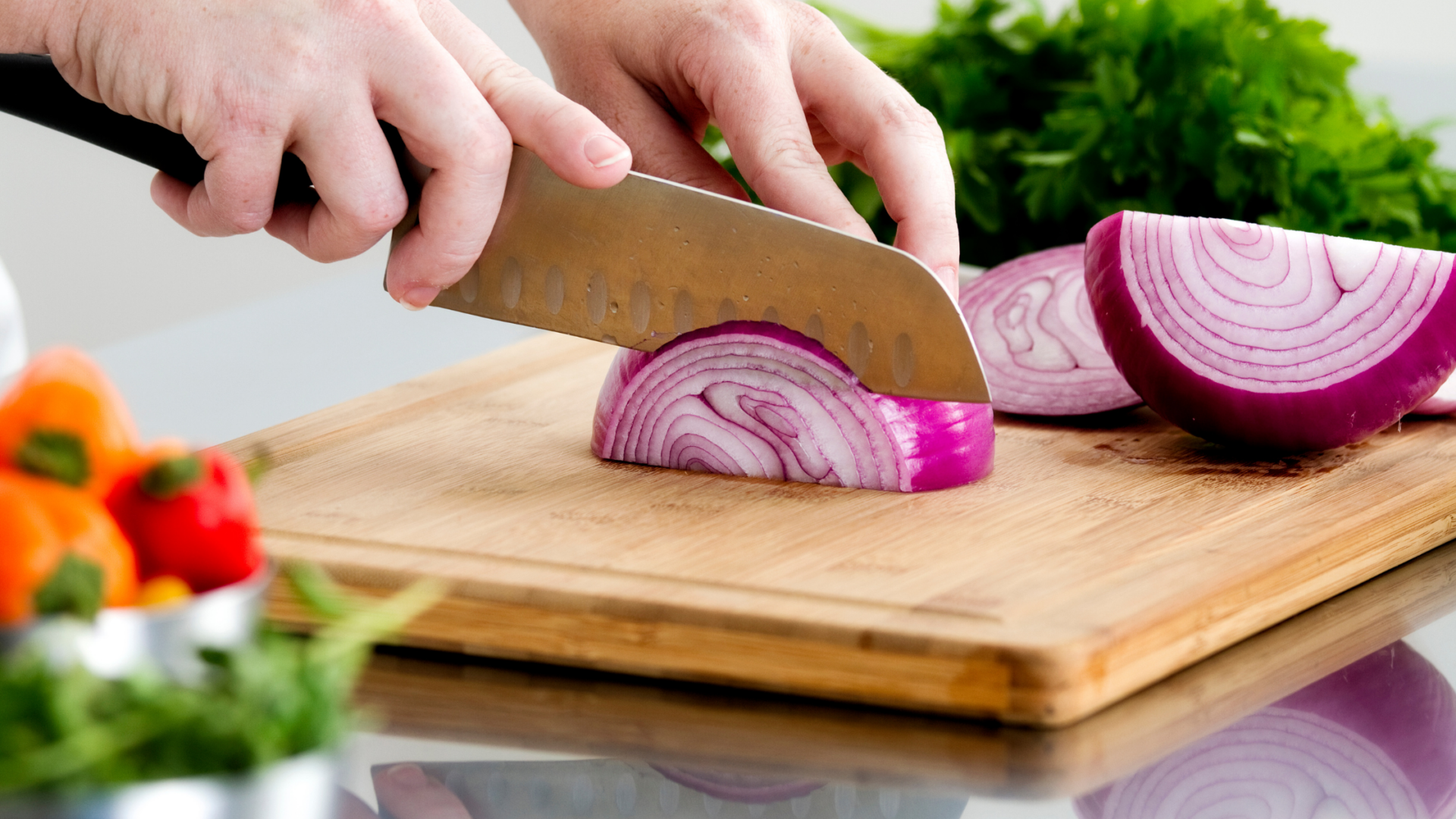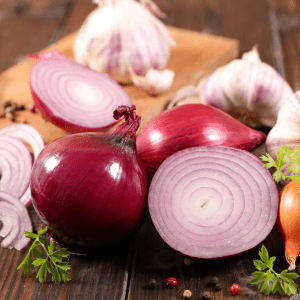Why Onions Make You Cry

November kicks off the holiday season with Thanksgiving and peeking around the corner are Christmas and New Year’s Day. Most of us enjoy family gatherings, epic parties, football, and a host of other activities during this time. Eating is a huge part of these festivities. And if you will be one of the cooks operating a stove, oven, fryer, or grill during the holidays, an onion will surely be a standard ingredient in your kitchen.
Onions have high levels of antioxidants and produce anti-inflammatory effects. They are versatile enough to be baked, boiled, roasted, sauteed, fried, grilled, powdered, or eaten raw. Also, they vary in color; the most common are red, white, and yellow. Tastes range from mild and sweet to sharp and spicy based on the variety and season. Onions provide a savory aroma and delectable taste, but they also cause unwanted tears while prepping for meals. What causes these tears? Well, let’s dig deep and learn why this tasty root vegetable (grown underground) causes waterworks.
Why do Onions Make You Cry?
Onions mature underground and are prone to being eaten by pests and animals like slugs, grasshoppers, groundhogs, and moles. They all feast on the roots and bulbs. So, onions have a defense mechanism to prevent this called the lachrymatory factor. When damaged, onions give off sulfenic acid and enzymes. Now, simply peeling an onion won’t make your eyes water. However, if you chop, cut, smash, or crush it, these actions break open the onion’s cells. The acid and enzymes then combine to create a chemical reaction that produces an invisible vapor that gets in your eyes.
This vapor is called syn-Propanethial-S-oxide, a gas that makes your eyes burn and fill with tears. This gas activates pain receptors in our eyes, which are designed to guard them against smoke, chemicals, harsh vapors, and other irritants. Tears are the eyes’ defensive weapons, which protect them and flush out irritants.
Tear Prevention
-
Use fresher onions and a sharp knife
Fresher onions are less likely to cause crying than those stored for an extended time. Also, a sharp knife will easily and quickly cut through an onion. The sharper the knife, the less damage is done to the onion, which releases fewer irritating gases into the air.
-
Use a proper cutting technique
Don’t use much force, and don’t press straight down when cutting an onion. This will bruise the onion and activate its defense system. Instead of using the middle of the knife, begin cutting with the tip of the knife. Then, rock down and roll through the onion.
-
Utilize a cooking hood with a fan
The hood fan circulates and ventilates air, reducing the chance of the gases reaching your eyes.
Unfortunately, none of these methods are 100% reliable. No matter how hard you try to avoid watery eyes, sometimes you must shed a few tears.
Alternative Options to Cutting Onions
If you aren’t in the mood for blurry vision and watery eyes while cooking, try these instead:
- Precut onions
- Onion powder or dried onion
- Flavorful substitutes like garlic, shallots, chives, and leeks
Didn’t think you would get a chemistry lesson from The Eye Center, huh? But there is much more to a simple onion than meets the eye. Pun intended. Anyway, keep an eye out (sorry, couldn’t resist.) for more fun and interesting articles that help you understand how diet, environment, genetics, and other factors affect your eyes.
If you are interested in gaining more insight into your eye health, contact The Eye Center, with locations in Huntsville and Madison, at 256-705-3937 to schedule a comprehensive eye exam today.
